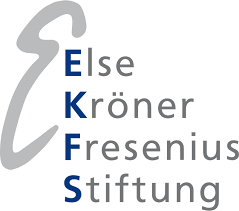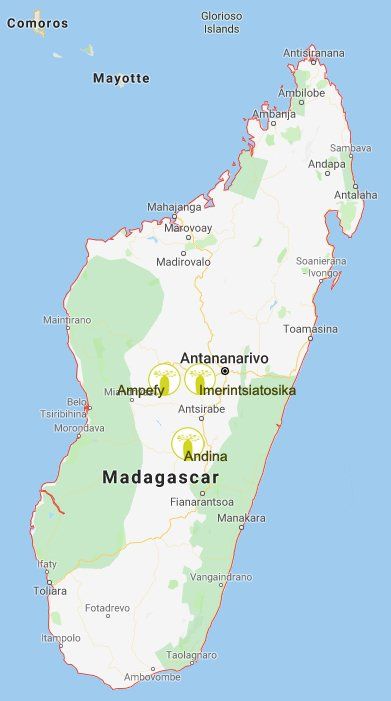ADAMA-2
ADAMA-2
ADAMA-2
Advancement of rural public health infrastructure in Madagascar:
Imerintsiatosika, Andina, and Ampefy
Advancement of rural public health infrastructure in Madagascar:
Imerintsiatosika, Andina, and Ampefy
The EFKS has funded AFRINGO e.V./A.SA for a project entitled “Advancement of rural public health infrastructure in two sites in Madagascar: Imerintsiatosika and Andina which has achieved all outputs envisioned and closed on December 31, 2018.
The ADAMA project was built on the fact that less than 30% of the population sought health care at the study enrolment centers of a previous fever study and that rate was much lower compared to other African nation. Further investigations indicated that the expectations of Malagasy people towards the existing health care system is low; drugs are commonly unavailable at the health centers, and as a result, people regularly consult pharmacists for treatment or seek traditional herbal medicine or stay at home with often fatal outcomes. Similar to other African nations, the rapid turnover of medical personnel, lack of continuity in policy, lack of resources, poor management of available resources and poor implementation are major constraints to improving the health systems. In addition, women are frequently disadvantaged and are less likely to receive adequate medical care, which results in significant socioeconomic disadvantaged.
In Andina, AS.A has been established, which has since then built a new community health care center in the area to provide the basic primary health care service to its medically under-served rural population. Attendance rates of patients are high, exhibiting the need for such a facility in the resource-limited settings as a large number of patients are still suffering from extremely severe diseases, i.e. people suffering from bubonic plague. After successful initial funding, capacities were improved in both healthcare facilities, necessary local staff was hired, diagnostic capacity of laboratories (parasitology, helminthic infections) was improved, health care facilities were equipped with necessary medicines, and training courses of microbiology/coproscopy were conducted. In the course of the project, the number of patients being treated at the healthcare centers increased, some of them walking as far as 30km to get medical care with the knowledge that medical personnel and essential medicines are available. The facility in Andina
was used to conduct a schistosomiasis mass campaign covering 14,500 people. Further, the facility was used for a group of dentists travelled to Madagascar from Germany and used the newly established center as their basis to treat 741 people for free; this was very well received by the population. Additional medical doctors/health personnel were hired to complement existing staff and the pilot project activities (implementing a healthcare scheme) was discussed in the Ministry of Health. The process includes 21,000 coffee plants for 2,100 families to ensure in long-term funding of the cost of the health insurance. A training course on hospital, personal and pediatric hygiene was conducted in September 2018. To date, 5,671 people were examined and treated in Andina (except those treated by the dentist and part of the Schistosomiasis campaign).
In Imerintsiatosika, the facility has tremendously improved since inception of the program, 15,788 people were seen by doctors and treated. Notably, we identified a high rate of typhoid fever cases which now forms the basis for a Gavi application to introduce typhoid conjugate vaccines into the national health system.
With the renewed funding of the ADAMA-2 project we plan to further advance rural health care in the two districts, Imerintsiatosika
and Andina
and work towards self-sustainability: we also propose to expand to an additional site, Ampefy, an area of high schistosomiasis endemicity. For the two already supported health care centers, we plan to build on the achievements we had in the past years, provide additional basic diagnostics and drugs and look at the outcome of the coffee plant-based insurance system.
For the new site in Ampefy, the aim is to improve a point of health care that will become widely accessible to the local population, focusing particularly on womens’ health and providing regular training courses for medical personnel that will ensure long-term sustainability after setup. Further, specific attention will be schistosomiasis control in the that area.
All project activities will be executed by the NGO AS.A, with technical support from AFRINGO e.V. and close collaboration with the Ministry of Health of Madagascar. Proposed activities work towards achieving two objectives: a) ensure the ability of the health care facilities to provide adequate services for the most common diseases, and b) institute a process for quality control/quality assurance of services provided in order to build- up community trust for long-term sustainability.
Project duration:
2 years
ADAMA-2 project sites










